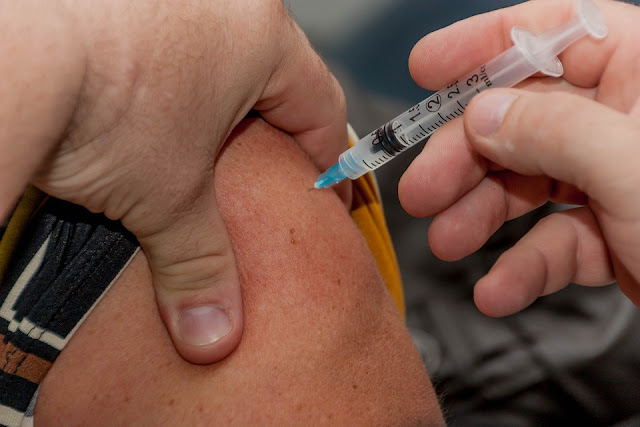This claim can be proven based from numerous studies that experts have done to the four vaccines used for the HAV wherein it showed that almost 100% of the adults who have received vaccination formed protective levels of antibodies within just a month of receiving a single dose of the hepatitis vaccine. It was also added that eight years after the adults have received two or more doses of the same injection, 99% to 100% of them were still fully protected and secured. Moreover, the same results have also been seen in the injection that prevents the acquirement of the HBV. The studies have shown the effectiveness of both the hepatitis vaccines in which they added that these injections have the ability to give immunity to anyone who has been vaccinated for 20 to 30 years and probably, even for life.
On the other hand, with all the medications to keep one from getting the HAV and the HBV, there are a number of side effects one can experience. Experiencing side effects upon medication is inevitable but for the hepatitis vaccines, the safety record is rather outstanding. The most common side effect a person who has been vaccinated by the hepatitis B shot is simply soreness at the area of the injection. Believe it or not, ever since the hepatitis B vaccine has been introduced in the United States in 1982, there have been no reports of any serious side effect other than what was mentioned. And in that same time, the occurrence of people who have acute hepatitis B has drastically declined by around 82%.
Furthermore, only mild side effects have been reported by those who received hepatitis A vaccination. It has been reported that the usual side effect anyone can obtain upon receiving shots for the HAV is the same soreness at the area of the injection. But for some, they also experience headache, loss of appetite and tiredness. In this case, the additional side effects are actually common for any medication. The only serious side effect people usually have is having a severe allergic reaction to the shot which can last for a few minutes to a few hours prior to receiving the shot. However, this serious side effect rarely occurs.
The next question lies on who is advised to get the hepatitis A vaccine. It is actually recommended that all children between the ages 12 months to 23 months should receive vaccination for the HAV. Aside from this, people who are 1 year of age and above who travel or are staying in countries with a high risk of the HAV should be vaccinated by the hepatitis A shot. Children and adolescents through age 18 who are living in places and communities that have a high rate of the disease should also receive these shots as normally implemented by the state. Moreover, those men who engage in sexual intercourse with the same sex are also advised to get the hepatitis A vaccine. People who use illegal street drugs specifically those that use needles, people diagnosed with chronic liver disease or hemophilia and even those working with HAV-infected patients or in HAV laboratories are also encouraged to get vaccination.
However, one should be knowledgeable of his own body because not everyone can get the vaccination for the HAV. The exemptions are those people who had a severe allergic reaction to an injection dosage given to them before. Instead, they are recommended to consult with their doctors first about the reaction they have experienced upon receiving the vaccination. Because these allergic reactions could be that the person simply has allergies or there is a specific substance in the shot that the person is allergic to. Pregnant women should also consult their doctors because the safety of pregnant women who get vaccination is not yet known.
Alternatively, there are only specific people who can get the hepatitis B vaccine such as the infants since they are reported to have the higher risk of becoming chronic so they are recommended to have immediate vaccination wherein they start with the first dose at birth. Children and adolescents younger than 19 who have not been vaccinated are also encouraged to get the hepatitis B shot. Furthermore, people who engage in sexual intercourse with a partner who is infected with the HBV and those who are sexually active but are not in long-term and monogamous relationships should also definitely get vaccinated. People who are being evaluated for a possible STD and those who have chronic liver disease, end-stage renal disease and HIV infections are also recommended to get the hepatitis B shot. Likewise, men who have sexual intercourse with the same sex, those who share equipment to inject drugs and those living or working in facilities for people who are developmentally disabled are also included.
Not many are aware but having close household contact with someone who has the HBV can also heighten the risk of obtaining the same disease. Additionally, a person simply traveling to places that have moderate to high rates of the HBV already exposes himself in contracting the same virus. And for the most obvious reason, the health care workers whose job puts them to be exposed to blood or possibly contaminated blood are also at risk. Nonetheless, those who had a severe allergic reaction to an earlier dosage given to them or those who are basically allergic to yeast should not get this vaccine because the yeast is actually used in making the hepatitis B vaccine.
Therefore, getting a shot of the hepatitis vaccine is very important because it has been a proven fact that an early immunization against any hepatitis virus resulted to very little impact to high risk persons and places. With this, universal immunization to prevent viral hepatitis that involves the vaccination of all the children is said to be the best way to avoid the continuous spread of this disease.

EmoticonEmoticon